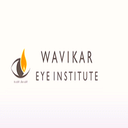LASIK - Say No to Boring Glasses!
While spectacles are a fashion statement for some people, for others they are an uncomfortable necessity. Though contact lenses may be a little more aesthetically pleasing they too can be quite uncomfortable and cannot be worn throughout the day. Thankfully, there is a third way to correct vision. Laser surgery or LASIK, it is a popular refractive procedure that can correct common vision problems, such as nearsightedness, farsightedness and astigmatism. This procedure aims at reshaping the cornea so that light entering the eyes can be focused onto the retina for the person to have a clearer vision.
Laser surgery is pain-free and quick in most cases. Usually, it does not take more than 15 minutes to correct vision in both eyes. The results of this surgery can be seen in as little as 24 hours.
The first step of laser surgery to correct vision is to create a thin, circular flap in the cornea. This is then folded back to access the stroma or underlying cornea. An excimer laser is then used to remove some of the corneal tissue. For people suffering from nearsightedness, the cornea is flattened while for people suffering from farsightedness, the cornea is made steeper. In cases of astigmatism, an irregular cornea is smoothened. Once the correct gradient has been achieved the corneal flap is put back into place and the cornea is allowed to heal naturally. There are no stitches or bandages required in a laser eye surgery. You may feel a temporary burning or itching sensation in your eyes immediately after the procedure. It is important not to rub your eyes or place any pressure on them. Your vision may also be cloudy or blurred for the first few hours. A doctor will usually advise you to rest for a few days after the surgery so that your cornea can heal properly. In a few days, your eyesight should stabilize, though, in a few rare cases, it may take a little longer. You should also avoid any form of strenuous exercising for a few days after the surgery.
Though LASIK surgery has a very high success rate, there are very rare occasions where spectacles may still be needed even after the surgery. Thus LASIK is a choice of treatment for many who seek freedom from glasses. If you wish to discuss about any specific problem, you can consult an ophthalmologist.



+1.svg)
